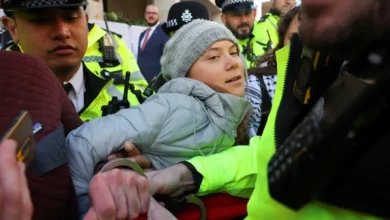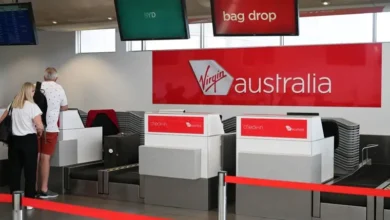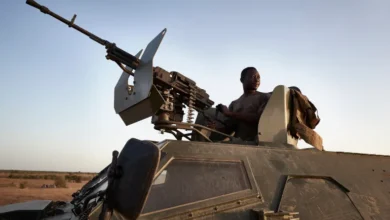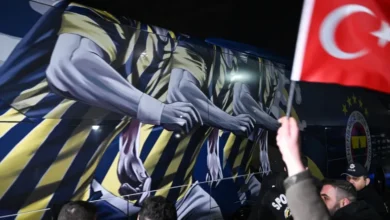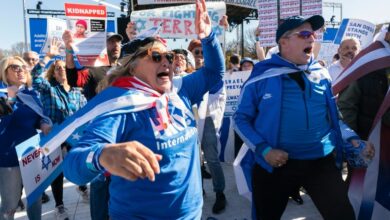Waiting into the night for a miracle rescue in Antakya
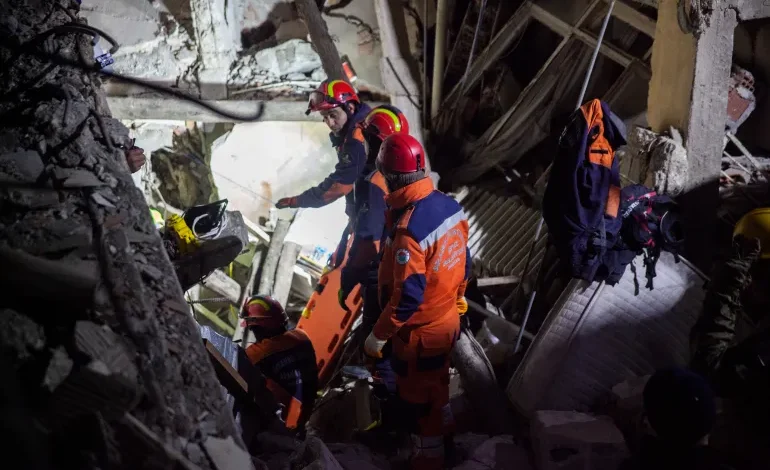
“Canlı! Canlı!” has been the most hopeful cry heard in the streets of Antakya since a magnitude 7.8 earthquake sent waves of death and destruction across 10 provinces in southern Turkey as well as parts of Syria a week ago.
Shouts by search and rescue teams to announce they had found someone “alive” send people running from all directions to focus their attention on what at this point of the disaster response seems like a miracle.
Late on Saturday, 18-year-old Fadel from Deir Az Zor, Syria, thought he had heard his uncle Ahmed still crying for help under the rubble of an apartment building in Antakya where he had lived on the eighth floor. Fadel said Ahmed had been calling out that he was trapped under the stairs.
Volunteers alerted search and rescue teams, including Turkey’s Disaster and Emergency Management Authority, the Istanbul Fire Department, and volunteer miners and construction workers.
The team of up to 100 people unfortunately has not yet found Fadel’s uncle. One of them said it could be “psychological”, that people believe they hear the voices of their loved ones because they so badly want to, and that after five days under the rubble, there is little to no chance that people will be found alive.
Crushing disappointment, then hope
But by 7am (04:00 GMT) on Sunday morning, all efforts were focused on trying to retrieve a 16-year-old girl from the basement of the collapsed building next door. Only three of the structure’s five floors could be seen, with the lower two completely crushed.
Miners, construction workers and a fire brigade had spent hours digging and cutting into monstrous chunks of cement and contorted rebar to finally reveal the girl, a Syrian refugee called Reem, who had somehow survived as she lay trapped next to her sister, who had died.
In between the work to cut around Reem and dump rubble from out of the cavity, medics occasionally fed her water through a straw, each time emerging to rejoice and declare how much she had drunk.
It was her first sip of fluids in more than six days.
At some point in the day, the earth started to shake and jump, and another shout went up. “Earthquake’s coming!” a rescue worker yelled, announcing the aftershock, one of hundreds since the initial quake on February 6.
Some of us looked up to the top of an adjacent apartment building where a giant piece of the roof with a satellite dish still attached balanced precariously on the corner. We all were hoping it would not fall and crush us.
One of the volunteers at the site pointed out that a body was lying just beneath our feet, which they found using a machine that checks for thermal heat, sound and vibration, but because that person had died, the priority right now was on the girl who was still alive.
People standing there were suggesting different numbers of how many other people were in the room with Reem – the biggest estimate was four people, one of them being her sister who had been lying next to her.
At 1pm (10:00 GMT), it was predicted it would take another hour to extract the teenager. At one point, an army commander called out, “She’s coming out!” and started to arrange the team into a corridor to pass Reem’s stretcher to an ambulance.
Trapped
This happened two more times as the day drew into evening. “Now she’s coming!” and medics once again prepared a neck brace and emergency blanket to wrap her in and stood poised for action.
Each time there seemed to be another issue with the cement that had trapped her foot, crushing it and pinning her in the rubble.
To lift the cement, the team decided to lever it with a jack, then cut blocks of wood with a chainsaw to prop up the cement and create a corridor to extract her.
As the workers waited, exhausted from not having slept for days, simple food and juice packets were delivered to them from time to time, but not everyone had the appetite to eat no matter how long they had been working without a break.
One miner who travelled from Ankara to volunteer told me he was just eating to be “strong and survive in order to keep on working”.
A 28-year-old firefighter from Istanbul brought me a bottle of water and a packet of biscuits after finding out I hadn’t eaten all day and had run out of water.
He told me he was one of 600 personnel who had been flown into Adana immediately after the earthquake and put on a bus straight to Antakya to help with the rescues. For the first two days, they slept out in the open – until tents were sent down from Istanbul – and worked with barely any tools or machinery.
Anxious families, rising tensions
As it grew dark, neon lights were brought out as work continued to free Reem’s leg. It became so cold that some firefighters went to sit near an open fire to warm up and drink tea. Yet Reem had survived in these conditions for what now added up to seven nights.
At around 9pm, seven police officers were called in by the army due to tensions with the extended family standing around the rescue operation, anxious to retrieve those still buried under the rubble.
I had been told that Antakya was no longer a safe place to be at night. Violence often erupts in the pitch-black streets. Opportunists have started stealing valuables. There is no shelter besides sleeping in an unsecured tent or car, and going to the toilet by yourself as a woman is an extra risk in itself.
I finally, reluctantly, had to leave the rescue site after the police had been deployed, considering I had no car of my own to sleep in and my only way back to Adana late at night was by bus.
Sad and disappointed that I was forced to leave without seeing Reem rescued, I passed my number to a firefighter and one of the soldiers, knowing they would film the moment. The workers had been ready with their phones multiple times over the afternoon whenever they thought she was going to be pulled out.
Walking through the dark escorted by a group of volunteers from Samsun, who had travelled all the way from the Black Sea coast, we tried not to trip on cracks opened up in the road by the earthquakes.
Only makeshift lights shone onto blocks where apartment buildings once stood and now machinery was scraping rubble away from what had once been people’s homes. The dust in the air scratched the lungs, and the smoke from all the fires burning clouded our vision.


